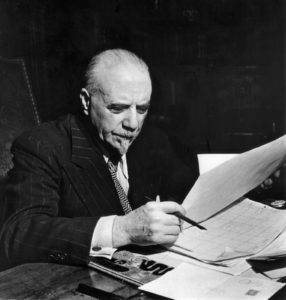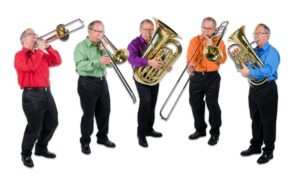
The great and eminently quotable English conductor Sir Thomas Beecham famously said:
“I never look at the brass. It only encourages them.”
Jeepers! Whatever would have prompted Sir Thomas to say such a thing?
We consider the brass instruments, the most common of which are trumpets, French horns (as they are called in the United States; “horns” everywhere else), trombones, baritones, and tubas. All of these instruments evolved from instruments meant to be played out-of-doors: from hunting horns, signal devices, and military instruments. There is hardly a trumpet player, trombonist, or tuba player alive who didn’t start his/her musical life playing outside, in marching bands. By their very nature these instruments are loud and the people who play them want to play them loudly.
Back then to Thomas Beecham’s comment, which is borne of decades of experience. I would tell you that for many (if not most) brass players, a dynamic of piano is beneath contempt, mezzo-piano is an insult, mezzo-forte is uncomfortably limiting, forte is permission, and fortissimo, well, fortissimo might very well be a mistake on the composer’s part. Why? Because, while the brass may be outnumbered 72 to 11 (or so) in a modern orchestra, they are certainly not outgunned, and they will bury – absolutely bury – the rest of the orchestra (excluding the piccolo) if they are given even half a chance to do so. As a result, conductors spend a not insignificant portion of their professional lives attempting to quiet the brass, attempting to reign in the brass, attempting to balance the brass with the rest of the orchestra. Like herding saber-toothed cats, it’s difficult, sometimes dangerous work. We must remember that the brass players themselves – particularly those who play the trumpet, trombone, baritone and tuba – chose their instruments just because they could wail, just because they were shiny and loud. Asking a brass choir to play quietly for too long is like asking a Ferrari to stay under the speed limit: it goes against the very grain of what the instruments are all about.
“I never look at the brass. It only encourages them.”
Cautionary words from a great conductor.

Low Brass
The fearsome reputation of brass instruments and instrumentalists lies primarily with the low brass, the two orchestral words which will cause even those arrogant prima donnas in the first violin section to quiver: the trombones, baritone, and tuba. As a group, low brass players can be a pretty wild bunch, with their big horns and valve/slide oil and spit valves and their Homer Simpson beer bottle openers dangling from their belts. And yet, there is no sound on the planet as rich, powerful, or as viscerally moving as that of the low brass instruments playing together.…
Continue Reading, only on Patreon
Become a Patron!